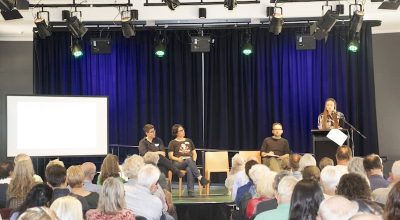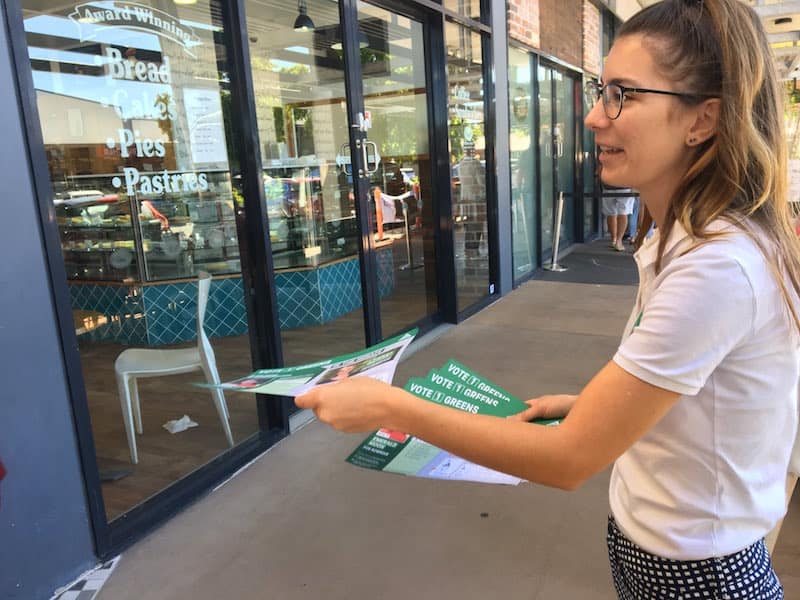Social Justice

Social Justice
Was Keneally’s Migration Diatribe Fair Dinkum Racist?
Greens Councillor Jonathan Sri from Brisbane argues that regardless of whether Kristina Keneally is racist herself, her views of immigration will bolster a racist system. Perhaps unsurprisingly, a few people have taken issue with my suggestion that Labor Senator Kristina Keneally’s opinion piece about immigration was advancing racist arguments. I shouldn’t need to start with this disclaimer, but: No, just... Read More
Social Justice
Staying Together While Keeping Apart During COVID-19: Part Two
In light of the Coronavirus pandemic and the rapid shift to physical distancing the Green Institute hosted a webinar on 19 March 2020 titled Staying Together While Keeping Apart. Green Agenda is now publishing transcripts of the speakers of the webinar. This week we are publishing the talks from Millie Rooney, Meg Clark, Tim Hollo and Natalie Osborne. Read Part... Read More


Culture, Economy, Social Justice
Staying Together While Keeping Apart During COVID-19: Part One
In light of the Coronavirus pandemic and the rapid shift to physical distancing the Green Institute hosted a webinar on 19 March 2020 titled Staying Together While Keeping Apart. Green Agenda is now publishing transcripts of the speakers of the webinar. This week we are publishing the talks from Nicola Paris, Tim Lo Surdo and El Gibbs. Read Part Two.... Read More
Peace, Social Justice
COVID-19: Militarise Or Organise?
This is a re-post of a blog originally published by the Women’s International League for Peace and Freedom. Please see here for more salient commentary in their series on COVID-19. In the last week as cities around the world have entered into lockdown, and as fear of the many uncertainties associated with our latest global crisis mount, some people have... Read More


Environment, Peace, Social Justice
Post-COVID: Will Our Better Angels Prevail?
I know I shouldn’t sit up late at night scrolling through the 24-hour coronavirus news coverage. I know reading countless horror stories about those impacted by the pandemic only makes me unnecessarily anxious, yet I do it anyway. While my biggest concern is for those losing their lives and loved ones to the virus, what also strikes me is that... Read More
Economy, Social Justice
Staying Connected During The Coronavirus Pandemic
In light of the Coronavirus pandemic and the rapid shift to physical distancing the Green Institute hosted a webinar on 19 March 2020 titled Staying Together While Keeping Apart. Green Agenda is now publishing transcripts of the speakers of the webinar. To start we are publishing the presentation from Holly Hammond, who argues that to get through this we need... Read More


Democracy, Economy, Social Justice
Going Beyond Waged Labour
Elise Klein provided a keynote address at the Green Institute conference, Reclaiming Democracy, in 2019. In this talk she discusses the need to think beyond waged labour, seeing it as an institution that is not democratic and never will be. Introduction I want to begin by acknowledging that we meet on the unceded lands of the Ngunnawal, and pay my... Read More
Democracy, Economy, Social Justice
Jobs, Justice And A Liveable World: The Green New Deal And Electoral Politics
On August 29, 2019 the UQ Greens, alongside QLD Greens MP Michael Berkman hosted the forum ‘Jobs, Justice & a Liveable World: A Green New Deal for Australia’. Looking at the leadership being provided around the world on the issue, this panel asked the question what might a Green New Deal look like in Australia? With permission from the organisers Green... Read More


Culture, Democracy, Environment, Social Justice
Hope, Fear, Needing And Grieving: New Year’s Eve 2020 At Malua Bay
“Who will mend us? How will we mend?” In this piece, originally published on Valerie Braithwaite’s blog, Professor Valerie Braithwaite reflects on her experience of the 2020 bushfires on the south coast of NSW. [On Friday 3 January, 2020] I was one of the thousands who left the NSW south coast via Bega and Cooma, heading home to Canberra. Like... Read More
Democracy, Environment, Social Justice
Jobs, Justice And A Liveable World: Urban Planning In A Green New Deal
On August 29, 2019 the UQ Greens, alongside QLD Greens MP Michael Berkman hosted the forum ‘Jobs, Justice & a Liveable World: A Green New Deal for Australia’. Looking at the leadership being provided around the world on the issue, this panel asked the question what might a Green New Deal look like in Australia? With permission from the organisers Green... Read More
